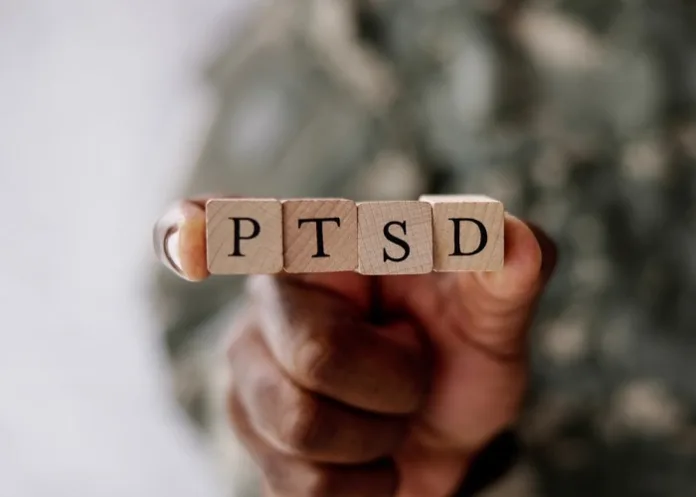Post-traumatic stress disorder (PTSD) is estimated to affect 3.9% of people worldwide at some point in their lives, with the only medication approved to treat the condition being antidepressants, but now the drug MDMA (also known as ecstasy) is likely to be approved in the next year after the largest clinical trial to date has found it to be safe and effective.
“A lot of people with PTSD are depressed, and so antidepressants target that depression,” said Jennifer Mitchell at the University of California-San Francisco. But this merely lessens the symptoms, rather than dealing with the cause of the condition, she added.
New Scientist reports that numerous studies have investigated whether MDMA could be used in psychotherapy to help people with PTSD. The drug puts people into a more relaxed and trusting state and dampens fearful responses when they recall past trauma, helping them to engage more openly with therapists.
“We know that MDMA facilitates the retrieval and then the reconsolidation of fear memories within the amygdala (part of the brain that regulates emotion),” said Mitchell. “And so somehow in this process of retrieval and reconsolidation, it seems you are shedding some of the emotionality associated with the memory.”
In June, Australia became the first country to allow doctors to prescribe MDMA for PTSD, alongside psychological support.
Mitchell and her colleagues previously showed that MDMA-assisted psychotherapy was effective, in a trial involving 90 people with severe PTSD.
The latest study involved 104 people in the US and Israel diagnosed with moderate to severe PTSD, of whom 27% were Hispanic or Latino and 7% identified as another ethnicity or race other than white.
This group is more representative of people with PTSD in the US, so the results can give more confidence that the treatment will work in a wider population, Mitchell said.
Participants all received three therapy sessions spaced a month apart. Half of the group received a dose of MDMA with their therapy sessions, while the other half received a placebo pill.
After these three therapy sessions, the researchers found that 71.25 of the MDMA group no longer met the diagnostic criteria for PTSD, compared with 47.6% of the placebo group.
The study was published in Nature Medicine.
In 2017, the US Food and Drug Administration (FDA) gave MDMA-assisted psychotherapy a “breakthrough therapy” designation.
This meant regulators worked with the research sponsors to design the clinical trials so they would deliver the evidence needed for the approval process.
As a result, the treatment could receive FDA approval early next year, said Mitchell.
Mitchell said the next question was how long the effects of MDMA-assisted therapy lasted.
“Previous data has shown that they’re very durable and last for years, but we need to replicate that now in a phase III and see if that’s true, and for whom,” she said.
Study details
MDMA-assisted therapy for moderate to severe PTSD: a randomised, placebo-controlled phase 3 trial
Jennifer Mitchell, Bessel van der Kolk, Berra Yazar-Klosinski, et al, and MAPP2 Study Collaborator Group.
Published in Nature Medicine on 14 September 2023
Abstract
This multi-site, randomised, double-blind, confirmatory phase 3 study evaluated the efficacy and safety of 3,4-methylenedioxymethamphetamine-assisted therapy (MDMA-AT) versus placebo with identical therapy in participants with moderate to severe post-traumatic stress disorder (PTSD). Changes in Clinician-Administered PTSD Scale for DSM-5 (CAPS-5) total severity score (primary endpoint) and Sheehan Disability Scale (SDS) functional impairment score (key secondary endpoint) were assessed by blinded independent assessors. Participants were randomized to MDMA-AT (n = 53) or placebo with therapy (n = 51). Overall, 26.9% (28/104) of participants had moderate PTSD, and 73.1% (76/104) of participants had severe PTSD. Participants were ethnoracially diverse: 28 of 104 (26.9%) identified as Hispanic/Latino, and 35 of 104 (33.7%) identified as other than White. Least squares (LS) mean change in CAPS-5 score (95% confidence interval (CI)) was −23.7 (−26.94, −20.44) for MDMA-AT versus −14.8 (−18.28, −11.28) for placebo with therapy (P < 0.001, d = 0.7). LS mean change in SDS score (95% CI) was −3.3 (−4.03, −2.60) for MDMA-AT versus −2.1 (−2.89, −1.33) for placebo with therapy (P = 0.03, d = 0.4). Seven participants had a severe treatment emergent adverse event (TEAE) (MDMA-AT, n = 5 (9.4%); placebo with therapy, n = 2 (3.9%)). There were no deaths or serious TEAEs. These data suggest that MDMA-AT reduced PTSD symptoms and functional impairment in a diverse population with moderate to severe PTSD and was generally well tolerated.
See more from MedicalBrief archives:
MDMA (ecstasy) treatment for alcoholism could reduce relapse
Study finds that ‘ecstasy’ could help with PTSD treatment
All clear for a trial of Ecstasy drug in PTSD patients

